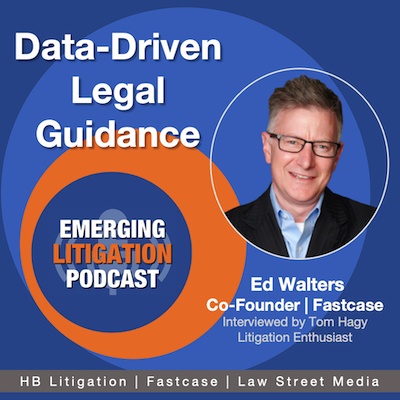An Innovative New Law Firm Self-Ranking Tool with Molly Huie and Sara Lord
What if law firms could measure success using more than just headcount and revenue? In this episode, Molly Huie of Bloomberg Industry Group joins data strategist Sara Lord of Reed Smith to discuss Bloomberg’s innovative Leading Law Firms self-ranking tool. The program blends financial strength, talent, innovation, growth, and excellence metrics into an interactive platform that helps firms benchmark performance in a more meaningful way. The conversation explores how the tool benefits business development leaders, managing partners, and firms of all sizes seeking data-driven insights.










